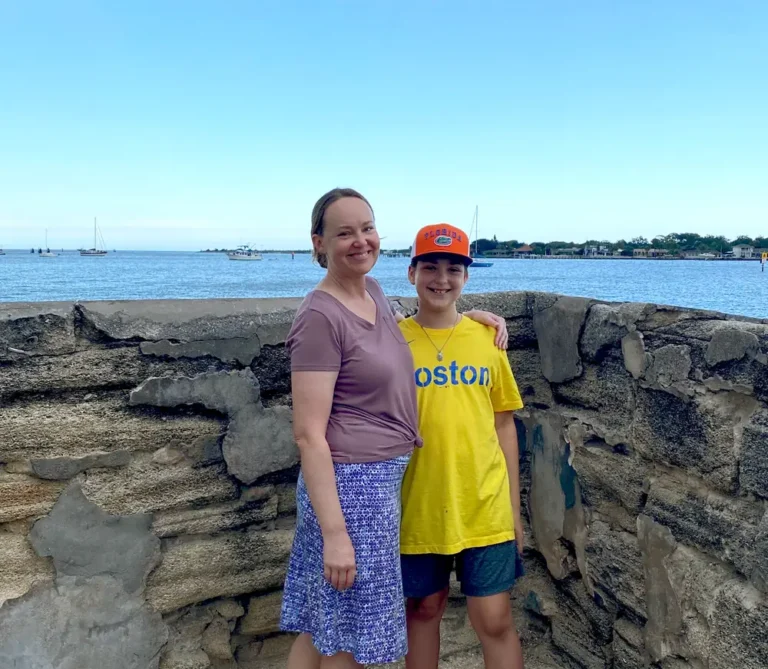‘It won’t go back to normal’: What this year’s heat waves mean for life in the coming years

Record temperatures are here to stay, and society needs to do more to curb them and adapt, best-selling author says
The heat will be one of the biggest stories of 2023, with relentless record-breaking heat sweeping much of the United States and the world.
Canada has set new records for wildfires. For the first time, Phoenix reached 110 degrees or higher every day in July. This summer, the temperature in hot tubs in the ocean off the coast of South Florida reached 101 degrees. In recent years, heat waves have sent temperatures above 115 degrees from the Bay Area to Southern California, putting a strain on the power grid.
According to scientists, El Nio conditions, combined with climate change, are exacerbating heat waves. This has far-reaching consequences for public health, outdoor workers, and even America’s food supply. “The Heat Will Kill You First: Life and Death on a Scorched Planet,” a New York Times best-seller written by Palo Alto native Jeff Goodell, delves into the subject.
For clarity and length, this conversation has been condensed and edited.
Q: What do you say to people who say, “Well, it’s always hot in the summer?”
A: Obviously, it gets hot in the summer. But not in this heat. Heat records are being broken all over the world. This is proof of what climate scientists have been saying for a long time: the more fossil fuels we burn, the more CO2 (carbon dioxide) enters the atmosphere, and the planet becomes hotter.
Q: How likely are such conditions in the coming years and decades?
A: The climate we grew up in and are all accustomed to is no longer a part of our world. We are entering a new climate era marked by extreme temperatures and events.
This type of planetary weather chaos will worsen until we stop emitting CO2 into the atmosphere. The temperatures will then stabilize.
And what we’re seeing now, as everyone can see with their own eyes, are the effects of a relatively minor temperature change.
Q: In 2004, California’s greenhouse gas emissions peaked. Renewable energy is on the rise. In addition, many European countries, including California, are phasing out the sale of new gasoline-powered vehicles by 2035.
A: There is a lot of movement. When I was giving talks and writing stories about climate change ten years ago, there was an economic argument: “We can’t afford renewable energy or electric cars or anything like that because they’re all too expensive.” However, renewable energy is now less expensive to build almost everywhere on the planet. Electric vehicles are becoming more popular, as well as cheaper and better. In Texas, America’s fossil fuel capital, renewable energy now accounts for 30% of the grid. That’s all right. It simply isn’t happening fast enough. Oil and gas companies are doing everything possible to slow the transition.
Q: How do you see this unfolding in the coming decades? Will cities like Phoenix become uninhabitable? Is there going to be a mass migration from the world’s hottest places to cooler countries?
A: Phoenix will not be uninhabitable for everyone. If you have the right kind of spaceships and containers to live in, you can live on Mars. For a short time, you can survive at the bottom of the ocean. People can live in Phoenix in hot weather. Who is the question? And how much will it cost? What about those who can’t afford to live in air-conditioned bubbles all of the time?
There are billions of people on this planet who do not have air conditioning and will not have air conditioning in the near future. The men I just saw working to repave the asphalt in front of my house are not in the air conditioning industry, nor are our construction workers or farm workers who produce our food. We can’t air condition the oceans, which supply much of our food, or wheat and corn fields. Except for reducing CO2 emissions, there is no quick fix.
Q: What steps should be taken next? I don’t believe I hear you saying it’s hopeless.
A: I am not a gloomy person. I don’t believe there is nothing we can do or that this is an extinction-level event. There is much we can do, beginning with reducing fossil fuel emissions and being serious about it. We have the necessary technology. All that is required is political will.
We have the ability to alter the type of food we consume. We have the ability to influence the politicians we elect. We have the option of changing our cars or not driving at all. I mean, I think this is a fantastic opportunity to rethink the world we live in and how we want to build it.
How about cities? Should we plant more trees to mitigate the urban heat island effect? Putting up more cooling towers and white roofs? And what about using reflective building materials developed at places like the Lawrence Berkeley National Laboratory?
I was speaking with a city official in Houston a few weeks ago. He was saying that during the summer, they’re considering moving all construction projects to the evening because it’s simply too hot for workers to be outside during the day.
Is there a big technical solution?
A: When people talk about geo-engineering, the most common idea is to use high-altitude aircraft to spray small particles of sulfur or another element into the sky, essentially mimicking volcanoes. Volcanoes spew sulfate particles into the stratosphere, which act as reflectors and cooling zones.
However, it is a very dangerous and complicated idea. There is the possibility of a wide range of unanticipated consequences. I believe there will be major political battles over this.
Q: Do you have any final thoughts?
A: Whatever your thoughts are on climate change and its causes, it is happening, and it is happening quickly. We need to educate ourselves on the implications of living in extreme heat because we will have to do so whether we like it or not, for our own and our loved ones’ sake.
Goodell, Jeff
Age: 63
Rolling Stone magazine contributing editor; Atlantic Council Senior Fellow and 2020 Guggenheim Fellow
Palo Alto, California is her hometown.
Austin, Texas is where I call home.
B.A. in English from UC Berkeley (1984); M.F.A. from Columbia University (1990).
Five interesting facts about Jeff Goodell
- He has spent the last 20 years writing about climate change and other environmental issues.
- He has seven books to his credit, including Sunnyvale (2000), a memoir about growing up in Silicon Valley.
- He has discussed climate and energy issues on NPR, MSNBC, CNN, CNBC, ABC, NBC, Fox, and The Oprah Winfrey Show.
- He worked as a technical writer at Apple in Cupertino in the 1980s.
- Simone Wicha, his wife, is the director of the University of Texas’ Blanton Museum of Art.






